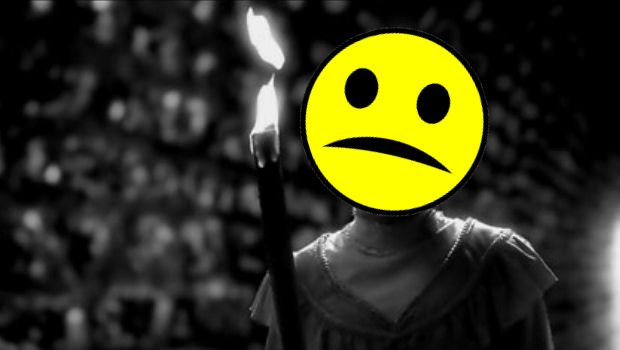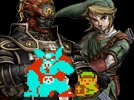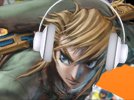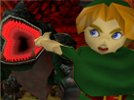If every Legend of Zelda is the same, why do they feel so different?
Nothing changes and nothing stays the same
As Nintendo continues to get us excited for The Legend of Zelda: Skyward Sword, I've sensed that fan reaction has been more tepid than it usually is. Part of that is the fact that the game has gotten lost in a shuffle of surprisingly amazing Nintendo announcements, but another part is simple franchise fatigue. More and more I am seeing Nintendo fans lament that every Zelda is the same, and they're tired of it.
Is that a true or fair assessment, however? Has The Legend of Zelda slumped into a formulaic system of endless repetition? I believe that, yes, the franchise has become formulaic on a fundamental level, but I contest that Zelda reinvents itself in a far less tangible manner than we gamers are used to. I wish to argue that Zelda is not the same game every time, even though it kind of is.
The Legend of Zelda is a unique series in that almost every game is a reboot. Players start off as an unassuming boy called Link who meets a princess named Zelda by some fortuitous happenstance, then must save the kingdom of Hyrule from the evil sorcerer/thief/pig Ganondorf. Along the way, he'll pick up a boomerang, a bow, some iron boots, a hookshot, and he'll toss a lot of bombs. This is the way Zelda has been for years, with a winning formula that was first perfected in A Link to the Past, continued through to Ocarina of Time (with a brief change of pace in Majora's Mask), and repeated in Wind Waker and Twilight Princess.
There’s no denying that the game's sequence of events, progression, and basic plot are nearly always the same. New items and inconsequential gimmicks show up, but the dungeon exploration, item use and character building elements have remained static for years. However, this is because Zelda changes not in terms of gameplay, but it in terms of experience. Yes, Zelda the game remains often unchanged, but Zelda the journey? That's something completely different.
Link, for all intents and purposes, is the same character, but his origins, his rise to prominence, and his final journey to meet and defeat Ganondorf always manage to be different. Just compare the various Links we've had over the years -- a young boy who rescues a princess at the request of his wounded uncle, a forest-dwelling Kokiri without a fairy, a lad on an island who sets sail with pirates to rescue his sister, and an innocent young ranch hand who becomes a hero when his village is attacked by monsters. From these wildly different beginnings, wildly different adventures are spun.
A Link to the Past takes you to an alternate world where people are turned into bizarre creatures. Ocarina of Times transports you to a twisted and dark future where Ganon rules the kingdom. Wind Waker is a fantastically colorful voyage across a wondrous Hyrulian waterworld, while Twilight Princess flits between a familiar Hyrule and a stark shadow realm. Yes, these various environments and adventures have familiar trappings and recycle old gimmicks, but the Zelda series manages to bring a different feeling, a unique take, and a wholly individual atmosphere in every sequel.
Each game has its own memorable moments and inimitable characters, from the terrifying Mask Shop Owner in Ocarina to the hilarious French minigame operator in Wind Waker. The cast of characters changes with each title, and each character brings a completely fresh story. The overarching narrative of any Zelda game is almost identical to the last, but the individual chapters that make up that narrative -- the stories within a story -- are different each and every time. In what other Zelda do you go inside the belly of a whale to rescue an irreverent princess but Ocarina of Time? In what other Zelda do you have a Wild West shoot-out with an army of Moblins but Twilight Princess? In what other Zelda do you meet a family of adorable little forest midgets with leaves for masks but Wind Waker?
Sign up to the GamesRadar+ Newsletter
Weekly digests, tales from the communities you love, and more
It's a strange but wonderful thing, that every Legend of Zelda game can feel so similar and yet feel so different. New emotional responses, brand new places to explore, a whole host of fresh monsters, villains, allies and memories are to be found in every single game. That is what is important in a Zelda game, and that is where Nintendo focuses its efforts.
Sure, The Legend of Zelda could totally reinvent its wheels with each game, and Nintendo could spend its time on being "innovative", but I believe this would come at the cost of focusing on engaging characters, interesting stories, and those special, unforgettable moments that make each Zelda a classic. To me, there's a difference between simply being innovative and being creative, and Zelda is a completely creative series, despite its total lack of revolutionary gameplay shifts.

It is easy to say that every Zelda is the same, but I think that's only true if you're focusing on one part of the experience, and to me, Zelda games are more than the sum of their parts. If you think Zelda games are always the same, you need to open your eyes and learn to feel games, not just play them. Every Zelda adventure, once played and experienced and enjoyed for everything it does, is different from the last. It's a rich and compelling series, far more varied and complex than one would belief if they simply study the basic gameplay.
They say a rolling stone gathers no moss. The Legend of Zelda is one of those special stones that stays put, yet still the moss finds no purchase. I fully expect Skyward Sword to be yet another gleaming, stationary stone. That is, after all, what makes The Legend of Zelda so very legendary.
Mar 7, 2011


Watch Nintendo's most intense rivalry shift and change with the ages

It's a bigger controversy than you think

Nintendo's upcoming re-release adds more than another dimension


